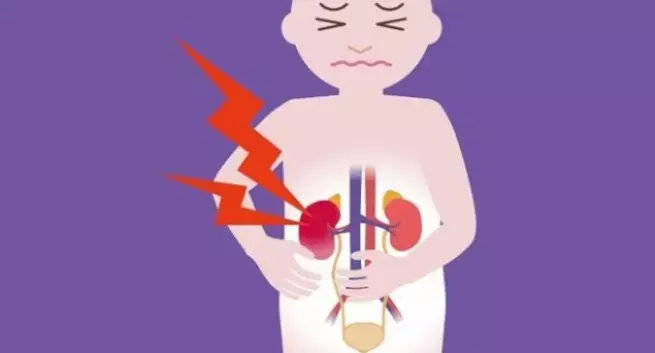- Home
- Medical news & Guidelines
- Anesthesiology
- Cardiology and CTVS
- Critical Care
- Dentistry
- Dermatology
- Diabetes and Endocrinology
- ENT
- Gastroenterology
- Medicine
- Nephrology
- Neurology
- Obstretics-Gynaecology
- Oncology
- Ophthalmology
- Orthopaedics
- Pediatrics-Neonatology
- Psychiatry
- Pulmonology
- Radiology
- Surgery
- Urology
- Laboratory Medicine
- Diet
- Nursing
- Paramedical
- Physiotherapy
- Health news
- Fact Check
- Bone Health Fact Check
- Brain Health Fact Check
- Cancer Related Fact Check
- Child Care Fact Check
- Dental and oral health fact check
- Diabetes and metabolic health fact check
- Diet and Nutrition Fact Check
- Eye and ENT Care Fact Check
- Fitness fact check
- Gut health fact check
- Heart health fact check
- Kidney health fact check
- Medical education fact check
- Men's health fact check
- Respiratory fact check
- Skin and hair care fact check
- Vaccine and Immunization fact check
- Women's health fact check
- AYUSH
- State News
- Andaman and Nicobar Islands
- Andhra Pradesh
- Arunachal Pradesh
- Assam
- Bihar
- Chandigarh
- Chattisgarh
- Dadra and Nagar Haveli
- Daman and Diu
- Delhi
- Goa
- Gujarat
- Haryana
- Himachal Pradesh
- Jammu & Kashmir
- Jharkhand
- Karnataka
- Kerala
- Ladakh
- Lakshadweep
- Madhya Pradesh
- Maharashtra
- Manipur
- Meghalaya
- Mizoram
- Nagaland
- Odisha
- Puducherry
- Punjab
- Rajasthan
- Sikkim
- Tamil Nadu
- Telangana
- Tripura
- Uttar Pradesh
- Uttrakhand
- West Bengal
- Medical Education
- Industry
Study links depression to rapid kidney function decline

China: A study of people with normal healthy kidneys found that those with more frequent depressive symptoms are more likely to show signs of rapid kidney function later. The study is published in the Clinical Journal of the American Society of Nephrology (CJASN).
"If confirmed further, the data provide some evidence for depressive symptom screening and effective psychosocial intervention for improving primary prevention of CKD," wrote the authors.
Depression is a common condition in middle-aged and older adults, and it can contribute to a variety of mental and physical problems. Previous research has found a link between depressive symptoms and rapid kidney function decline in patients with chronic kidney disease (CKD). To look for a potential link in adults with normal kidney function as well, a team led by Xianhui Qin, MD (Nanfang Hospital, Southern Medical University, in China) examined information on 4,763 individuals with healthy kidneys when they enrolled in the China Health and Retirement Longitudinal Study (CHARLS).
At the start of the study, 39% of participants had high depressive symptoms, and during a median follow-up of 4 years, 260 (6%) participants experienced rapid kidney function decline. There was a significant association between depressive symptoms at the start of the study and rapid decline in kidney function during follow-up. Participants with frequent depressive symptoms were 1.4-times more likely to experience rapid kidney function decline than participants with infrequent depressive symptoms, after adjustments.
"CKD is a leading risk factor for cardiovascular disease, kidney failure, and mortality worldwide. Therefore, the identification of more modifiable risk factors may possibly reduce the huge burden of CKD and its related complications by leading to early detection and prevention," said Dr. Qin. "While our study does not show causality, it demonstrated that high depressive symptoms were significantly associated with rapid decline in kidney function among Chinese adults with normal kidney function. If further confirmed, our data provide some evidence for depressive symptom screening and effective psychosocial interventions to improve the prevention of CKD."
Reference:
The study titled, "Association of Depressive Symptoms with Rapid Kidney Function Decline in Adults with Normal Kidney Function," is published in the Clinical Journal of the American Society of Nephrology.
DOI: https://cjasn.asnjournals.org/content/early/2021/05/27/CJN.18441120
Hina Zahid Joined Medical Dialogue in 2017 with a passion to work as a Reporter. She coordinates with various national and international journals and association and covers all the stories related to Medical guidelines, Medical Journals, rare medical surgeries as well as all the updates in the medical field. Email: editorial@medicaldialogues.in. Contact no. 011-43720751
Dr Kamal Kant Kohli-MBBS, DTCD- a chest specialist with more than 30 years of practice and a flair for writing clinical articles, Dr Kamal Kant Kohli joined Medical Dialogues as a Chief Editor of Medical News. Besides writing articles, as an editor, he proofreads and verifies all the medical content published on Medical Dialogues including those coming from journals, studies,medical conferences,guidelines etc. Email: drkohli@medicaldialogues.in. Contact no. 011-43720751


